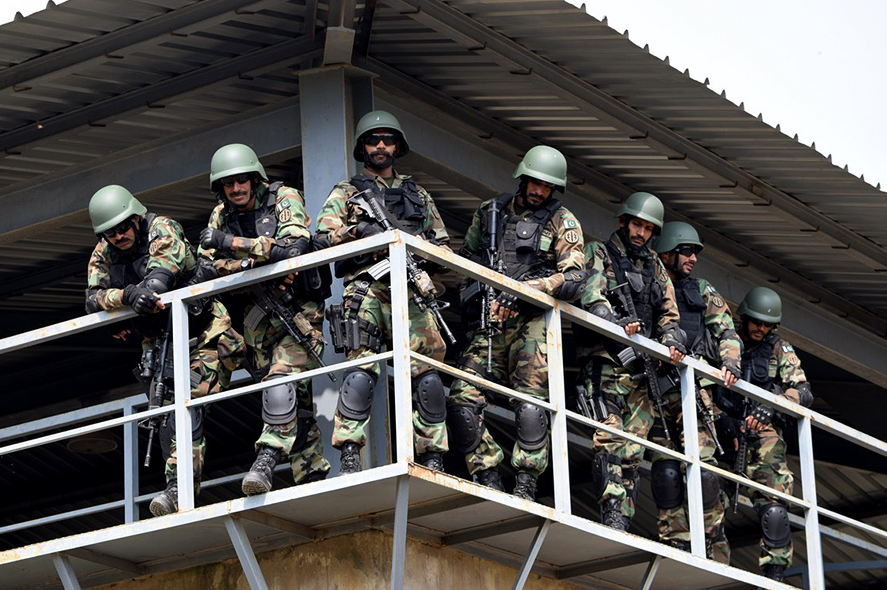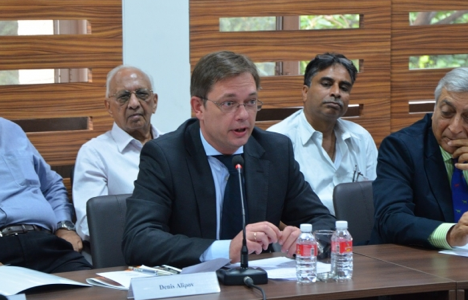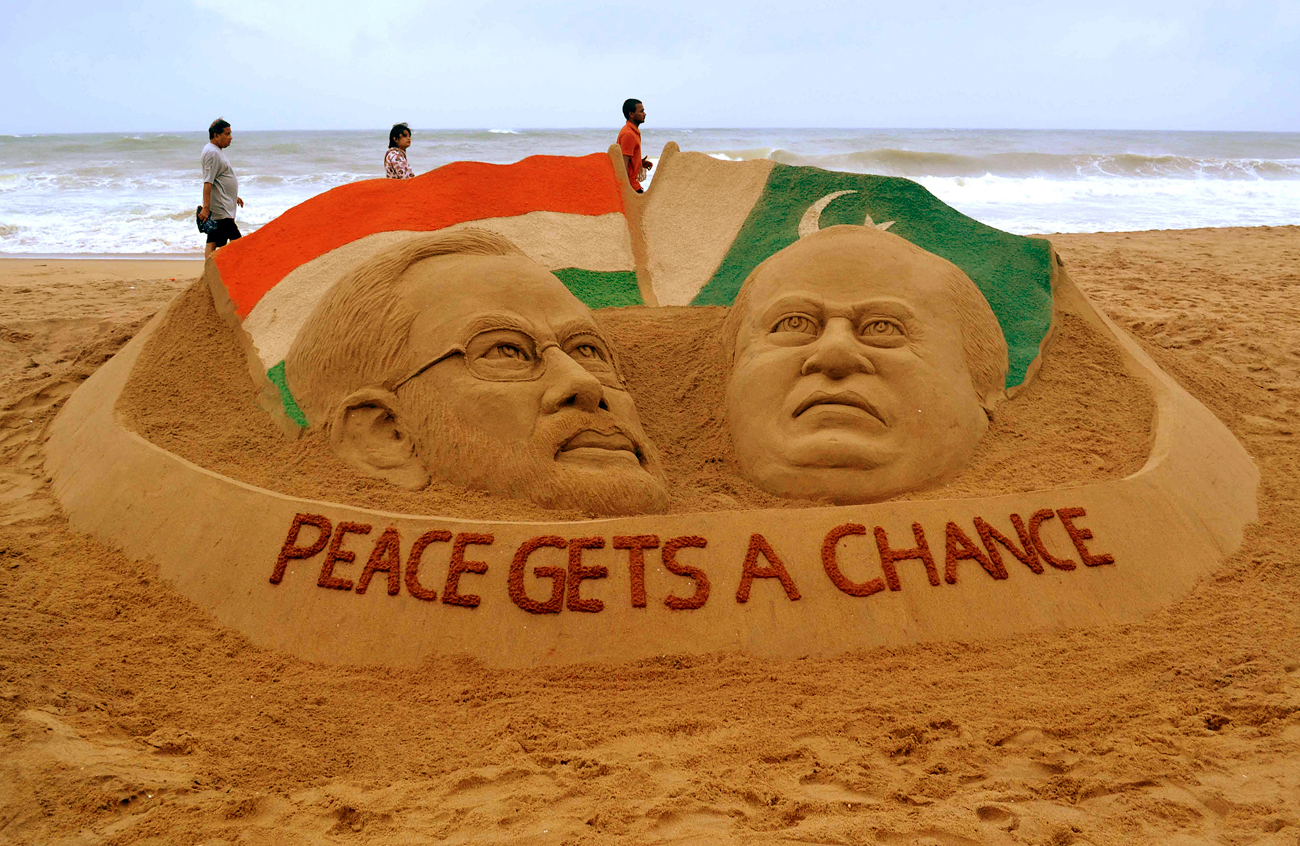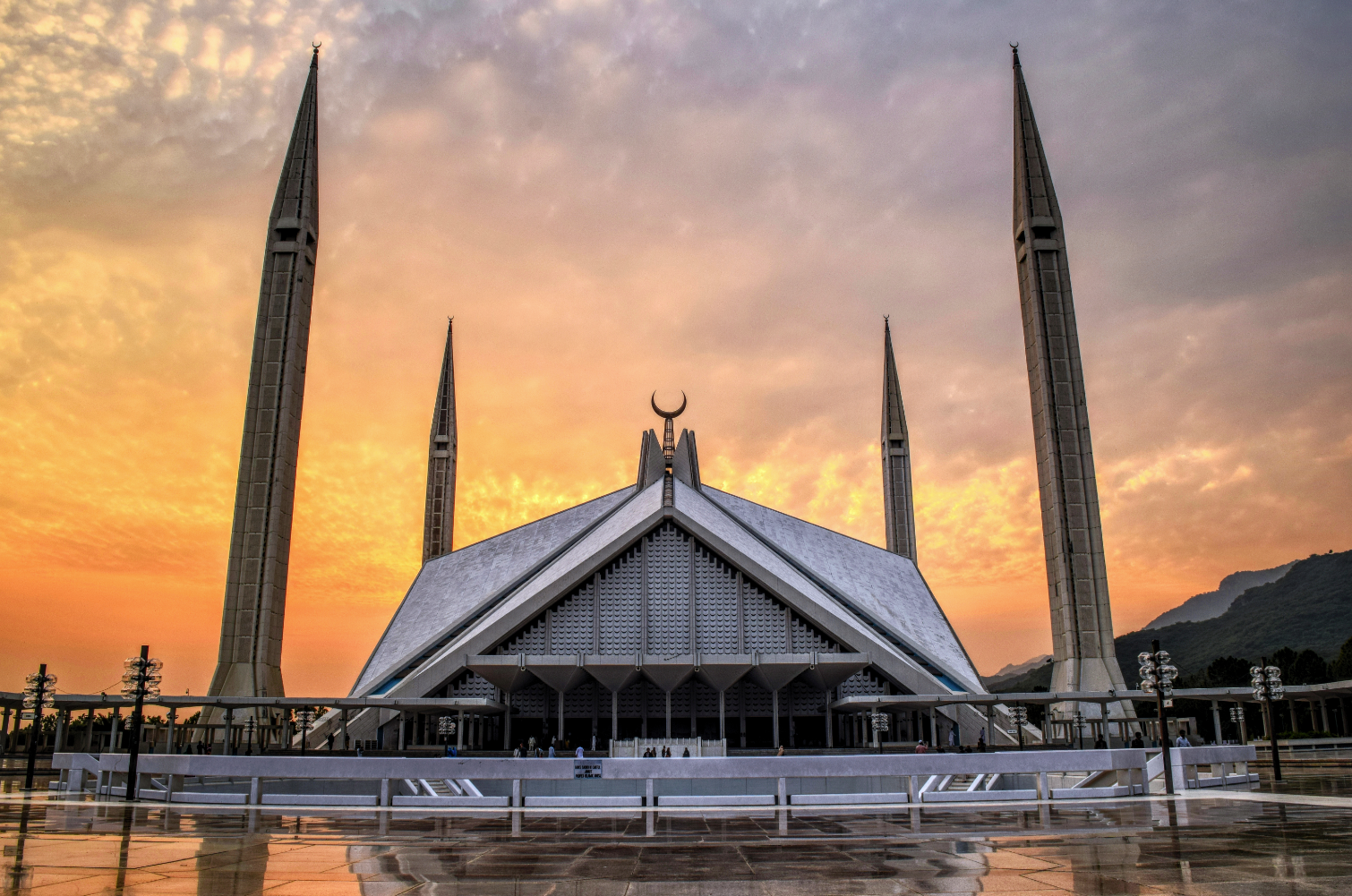Where does Pakistan fit in Russia’s South Asia strategy?
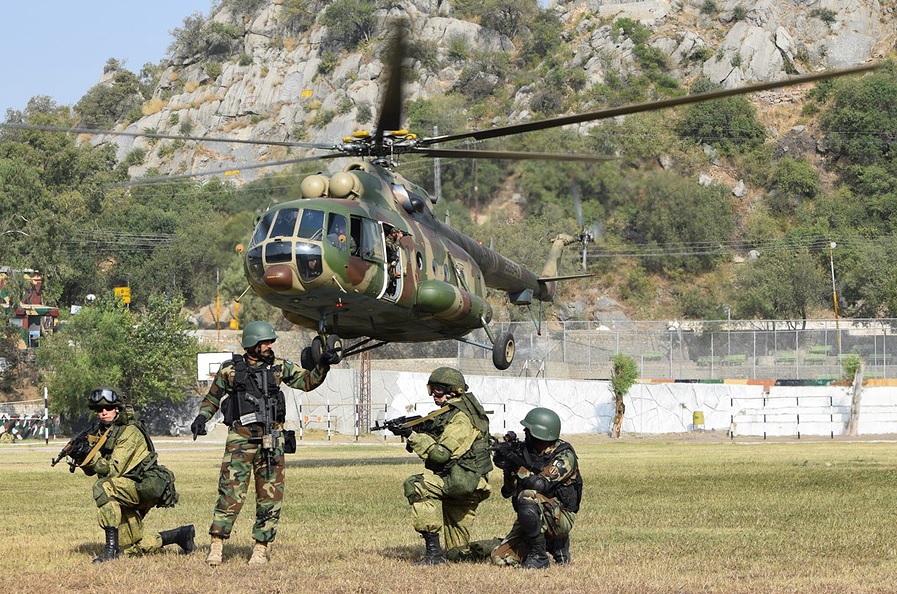
Russian and Pakistani servicemen during the Friendship-2016 joint military drills.
mil.ruEver since the Cold War, relations between Moscow and Islamabad have remained weak. Back then during the time of bipolarity, Pakistan was a close ally of the United States while India mainly sided with the Soviet Union.
Moscow and Islamabad were involved in military activities against each other with devastating consequences. In 1971 the Soviet Union supplied weapons and helped to arrange training camps for the Mukti Bahini guerrilla resistance movement in East Pakistan (as described by Ex-Soviet KGB foreign intelligence chief Leonid Shebarshin and Indian Intelligence Bureau officer Malloy Krishna Dhar). Moscow contributed to Pakistan's defeat in the 1971 war and the emergence of Bangladesh as a state.
Pakistan became a key supplying hub for weapons and fighters during the 1979-1989 war in Afghanistan and the main training field for jihadists. This war contributed to the disintegration of the Soviet Union.
After the collapse of the USSR there was no reason for Russia and Pakistan to avoid each other. Despite welcoming signals from Islamabad, Russian leaders were slow in their moving towards Pakistan. Russian President Vladimir Putin never visited Pakistan and it was only on Apr. 11, 2007, 16 years after the collapse of the Soviet Union, when then Prime Minister Mikhail Fradkov visited Islamabad.
Moving towards cooperation
The decision to facilitate cooperation between Russia and Pakistan was long expected. It was made only recently, in 2014, and resulted in the visit of the Russian Defence Minister Sergey Shoygu to Islamabad on Nov. 20, 2014. After that both countries passed a number of milestones.
Minister Shoygu signed an agreement on military cooperation. The two countries agreed on delivery of four Mi-35M Hind-E combat helicopters. They may arrive in Pakistan later this year.
In 2016 the Kalashnikov Concern participated in the trials for a main new assault rifle for Pakistan's infantry. The media in both countries reported about possible deals on additional Mi-35 helicopters (up to 20 aircrafts), Su-35 and Su-37 aircrafts, and even air-defence systems. However these supplies are seen very unlikely as of today.
On Sept.26-Oct. 10 Russia and Pakistan held their first-ever joint tactical exercises titled Friendship-2016 at the special forces training centre in Pakistan’s Cherat located in the northwestern province of Khyber-Pakhtunkhwa. It has been already confirmed by the Russian Land Forces Command, that there will be a second joint exercise in 2017.
Economic ties between Russia and Pakistan are not so good. In their statistical data the governments of both countries mention each other under the word “others.” Bilateral trade volume between Russia and Pakistan decreased in 2015 by 13 per cent and reached $395 million (as compared to $453 million in 2014).
Yet on Oct. 16, 2015, the governments of Russia and Pakistan signed an agreement on cooperation in the construction of the ‘North-South’ gas pipeline (from Karachi to Lahore). This agreement may help both countries to boost the bilateral trade with the Russian investment of $2 billion in the project.
Nonetheless, the facade of the relations between Russia and Pakistan looks impressive. Moscow and Islamabad clearly intend to deepen military cooperation and trade, and to have permanent political, military, and security dialogue.
This intention should be supported, since improving relations between Russia and Pakistan are one of ways to end legacies of the Cold War, and to make contribution to a new world order. Promising opportunities for a new level of Russia's cooperation with Pakistan will be opened in 2017 after this nation will become a member-state of the Shanghai Cooperation Organization (SCO) along with India.
Negative factors
However there are concerns that these opportunities will only bring short-term gains with no long-term strategic outcomes for both Russia and Pakistan.
The first reason for this is related to unfavourable conditions for close relations between Russia and Pakistan. Due to uneasy economic situations in both countries they have limited resources for mutual investments and joint business projects.
Third countries could also create obstacles for Russia and Pakistan on their way closer to each other. For instance, the United States may try to dissuade Pakistan from strengthening ties with Russia while New Delhi may oppose Moscow’s military cooperation with Islamabad.
The second reason for concern is Russia’s non-transparent and unpredictable moves towards Pakistan. Under the third president of Russia Dmitry Medvedev (2008-2012) Russia’s policy toward Islamabad was more transparent: The 2008 Foreign Policy Concept declared Pakistan as one of the key regional powers, that Russia intended to develop relations with on bilateral and multilateral levels. Moscow invested serious efforts in the Dushanbe Four initiative with Tajikistan, Afghanistan, and Pakistan. Islamabad had a clear but not a well-defined place in Russia's foreign policy.
Putin's return to the Kremlin in 2012 led to changes in the Russia' policy in South Asia. It seemed to become less clear and predictable. The first indication of this was a short notice cancellation of the Dushanbe Four summit in Islamabad in 2012 due to President Putin's inability to visit Pakistan. Shortly after that this platform ceased to exist. Later on, Pakistan disappeared from the Russia's foreign policy concepts of 2013 and 2016.
Due to these changes there is a clear understanding of Pakistan's place in Russia's foreign policy became almost absent. If Pakistan is an important political and military partner of Russia, and recipient of Russian weapons, how it could correspond to the Russian strategic partnership with India? If Pakistan is a promising member of the SCO, what is the reason for increasing bilateral military-technology cooperation between Moscow and Islamabad beyond the SCO, which has its own security cooperation framework? If Pakistan is seen in Moscow as part of the dialogue on the resolution of the Afghanistan problem, why not start Russian efforts to bring peace to Afghanistan from expanding the dialogue with Kabul first, and only after that with Islamabad too? How the contacts between Moscow and Islamabad on the Afghanistan problem and Russia's emerging interest in the Pakistani approach to the Taliban correspond to the assistance that Russia provides for the Afghanistan National Forces on bilateral and trilateral levels along with India?
The Russian official statements don't reveal any comprehensive strategy in South Asia, which could cover all these conflicting questions. For an external observer these moves of Moscow in the region look like separate tactical actions. And what is the most worrisome is that these actions of Moscow may be motivated by external reasons, not directly rooted to the South Asian countries.
These reasons could come from Russian relations with the West and its bid for the global role, its interests in Central Asia and the Middle East, and commitments to China. The value of the partnership with India, Pakistan and assistance to Afghanistan seems to be partly underrated by Moscow and partly dependent on its external interests. If true, the Russian decision to facilitate the cooperation with Pakistan could be a reflection of short-term goals, chosen by the Russian leadership due to external events, not directly linked to Pakistan.
Would it be suspicious for Pakistan that Russia decided to boost military cooperation with it only after the Ukrainian crisis, which led to unprecedented tensions between Russia and the West? Would it be worrying for Pakistan that Russia agreed to sell weapons to it only when the former became the No. 2 arms-exporter to India after the U.S.? Would it be frightening for Pakistan to know that Moscow ignored its concerns and agreed to supply India with S-400 air defence systems and extend the range of the BrahMos missiles over 600 km? This will change the military balance in South Asia, because India will be able to control air space of Pakistan with S-400 and hit targets in any place of this country with new BrahMos.
If Pakistan’s answer to these questions is “yes, it would”, Pakistan has a right to expect, that due to future external events Russia will be able to make unexpected U-turns, like President Putin made in 2014, when he cancelled his trip to Islamabad.
The example of the S-300 air defence deal with Iran, agreed by Moscow in 2007, cancelled in 2010 under the U.S. and Israeli pressure, and restarted in 2015, shows, that the Russian bilateral ties with some countries are vulnerable to the influence of others. This example frustrated some Iranians. One of them even said: “The Russians have always shown that they are not to be trusted too much, and they are willing to sacrifice those close to them in order to achieve their goals.”
Russia’s recent U-turn in Pakistan occurred in the end of 2016. In November, during the visit to Islamabad of Alexander Bortnikov, director of Federal Security Services, Russia clearly indicated its interest to have access to the Gwadar port and even to “join” the China Pakistan Economic Corridor (CPEC), according to sources in Pakistan. After that the Ministry of Foreign Affairs dismissed any Russian intention regarding CPEC.
Rethinking Russia’s South Asia strategy
The recent jump of Russia and Pakistan into the full-scale military cooperation seems to create false perceptions. It gives the appearance of the close and solid relations between both countries. But in fact it camouflages poor economic interdependence, lack of strategy for bilateral cooperation, fragility and reversibility of the achievements of Russia -Pakistan relations. Military cooperation between Russia and Pakistan simultaneously irritates third countries and provokes them to actively spoil a potential partnership between Russia and Pakistan.
That is why, instead of boosting bilateral military cooperation, Russia and Pakistan should focus on less visible, but more important fields of partnership, to start with formulating the roadmap for bilateral relations, and facilitating trade between them. The military part of cooperation is also possible too but it needs to be less provocative and visible. It could be limited by arms deals, military education, and bilateral consultations on the issues of mutual concern. As for the war games, they could be embedded into the SCO framework.
A trusted partnership with both India and Pakistan is possible only if Russia realizes and articulates their independent value for itself, makes its policy there South Asia-oriented, protects its ties with India and Pakistan from the third countries’ influence, and avoids U-turns and any kind of unpredictability in its regional strategy.
Views expressed in the column are personal.
Petr Topychkanov is an associate in the Carnegie Moscow Center’s Nonproliferation Program, and a senior researcher at the Center for International Security of the Institute of World Economy and International Relations of the Russian Academy of Sciences.
Read more articles by Petr Topychkanov here.
If using any of Russia Beyond's content, partly or in full, always provide an active hyperlink to the original material.
Subscribe
to our newsletter!
Get the week's best stories straight to your inbox
